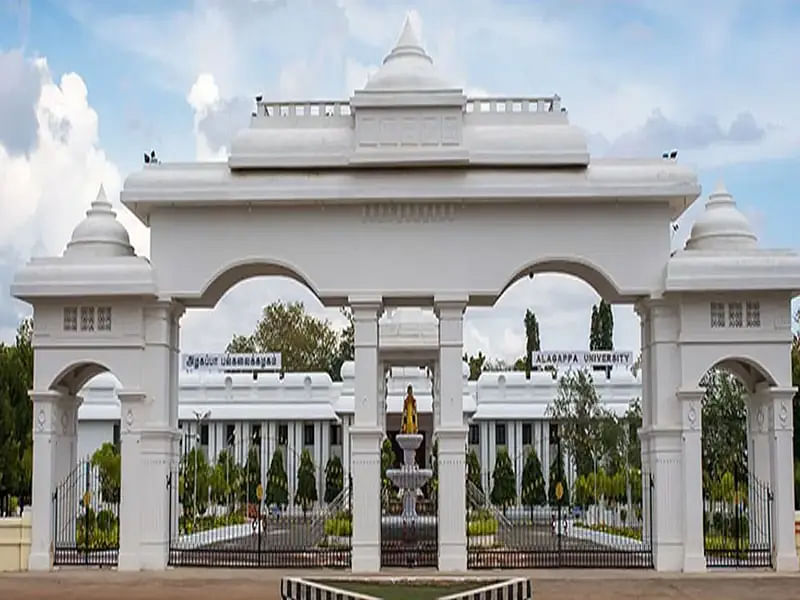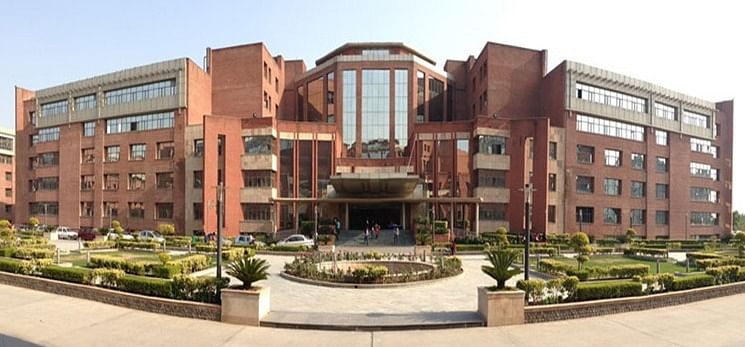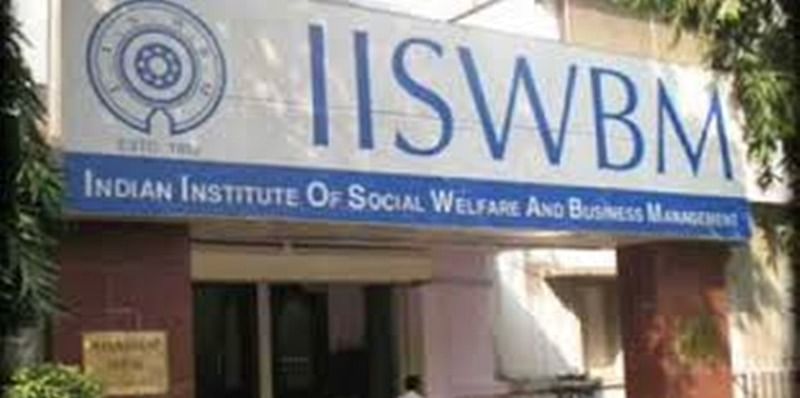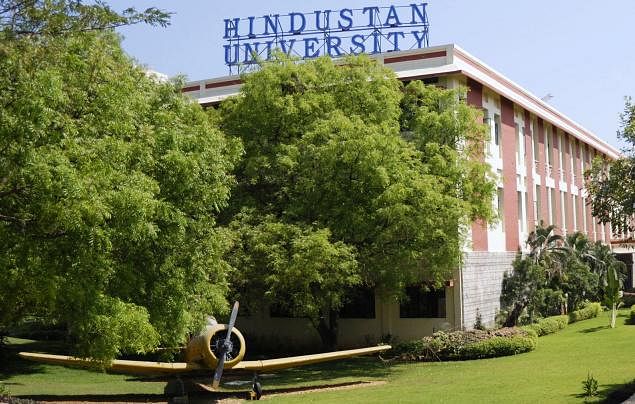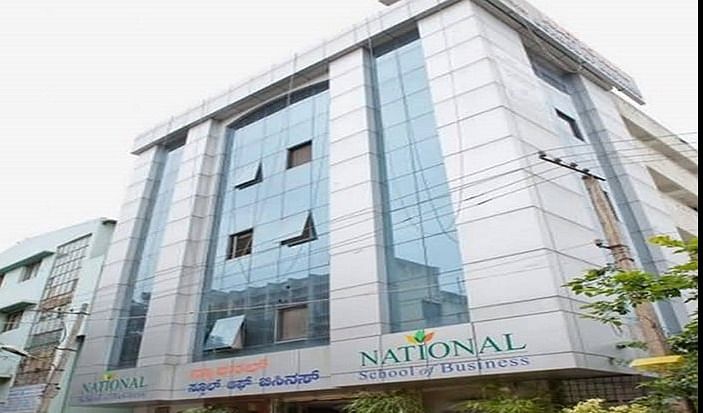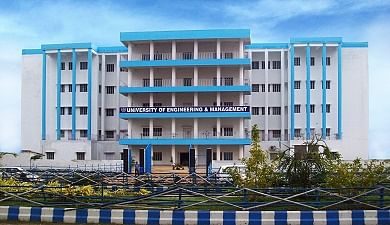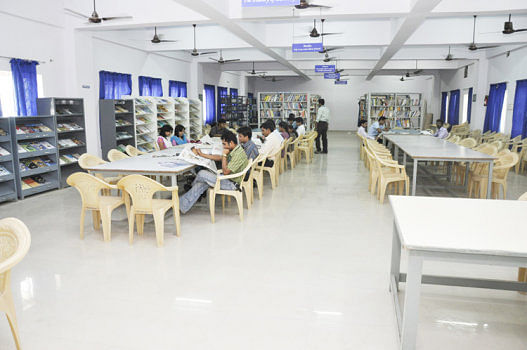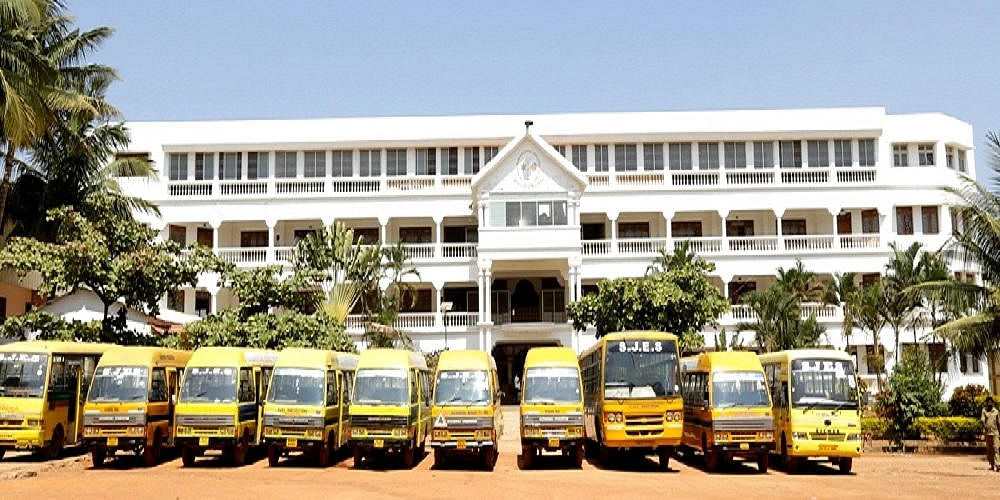MBA Logistics Management: Course Details, Eligibility, Admission, Fees
MBA Logistics Management is a two year postgraduation management course that deals with a study of supply chain management and business administration logistics. The course has active career opportunities in IT sectors, marketing, and sale, product-based industries, transport department and banking sectors, and much more.
Table of Contents
- About MBA Logistics Management
- Eligibility Criteria for MBA Logistics Management
- Who Should Pursue MBA Logistics Management Course?
- How To Get Admission for MBA Logistics Management?
- Types of MBA Logistics Management Courses
- Popular Entrance Exams for MBA Logistics Management
- Top MBA in Logistics Management Colleges in India
- Study MBA Logistics Management Abroad
- Fee Structure for MBA Logistics Management
- Syllabus and Subjects for MBA Logistics Management
- MBA Logistics Management Course Comparison
- Why Choose MBA Logistics Management Course?
- Preparation Tips for MBA Logistics Management Course
- Scope For Higher Education
- MBA Logistics Management Salary
- Career Options After MBA Logistics Management
- Skills That Make Students The Best MBA Logistics Management
MBA Logistics Management Course Details
| Degree | Masters |
| Full Form | Master of Business Administration in Logistics Management |
| Duration | 2 Years |
| Age | No age limit |
| Minimum Percentage | Minimum of 45%–50% academic aggregate from an acknowledged college or university |
| Average Fees | ₹3 - 24 LPA |
| Average Salary | INR 1.5 - 18 LPA (Source: PayScale) |
| Employment Roles | Logistics Manager, Supply Chain Manager, Logistics Coordinator, Supply Chain Analyst, Supply Chain Planner, Commercial Manager, Operations Manager, Purchasing Manager |
About MBA Logistics Management
MBA Logistics Management course deals with goods handling, controlling services, product supervision, client relationships management, and sales. The course is ideal for students with strong management control; the high-spirited team plays excellent communication skills. MBA Logistics Management subjects include corporate management, accounting, economics, business management, business communication, finance management, and much more.
This course offers many job scopes in diverse sectors like corporate companies, finance management, industries, product-based firms, human resources, airports, transport, hospitality, government, healthcare, etc. MBA Logistics Management course falls under the umbrella of the MBA course.
Eligibility Criteria for MBA Logistics Management
MBA Logistics Management eligibility criteria requires a minimum of 45%–50% academic aggregate in any bachelor's degree (10+2+3) of any discipline from a reputed college or university. Students must have scored a minimum of 80-90 cut-off in any standard entrance exams for admission into the MBA Logistics Management course.
Who Should Pursue MBA Logistics Management Course?
The goal of the MBA Logistics Management is that deals with the administration of financial, operational and commercial risks involved in Logistics Management. When selecting Logistics Management MBA, those who wish to break new ground in their field should think about the following factors.
- Candidates must really be interested in the topic.
- Students having a Bachelor's degree in a relevant field should be able to enrol in the course.
- Candidates can enrol in the course to hone and improve their Logistics Management abilities after at least a year of relevant experience.
When To Do Logistics Management Course?
Logistics Management offered at both the national and international levels offers professional opportunities across numerous sectors. The following are a few elements that influence Logistics Management:
- It is best to have experience as a Logistics Manager, for at least a year before pursuing a Logistics Management. Gaining weight while being welcomed is a good thing, even if it is not required.
- If candidates want to pursue Logistics Management abroad, they must have between three and five years of work experience.
- Before enrolling in Logistics Management, it is advisable to have some resources on hand and job experience due to the high cost of the programme.
How To Get Admission for MBA Logistics Management?
MBA Logistics Management Admission is based on the student's scores in standard entrance exams. There are many other deemed universities and private colleges that conduct university-level entrance exams. Few colleges select students by their performance in their academic history. Students can obtain an MBA by researching the admission process online. Listed below are the admission procedures in general:
Apply For the Course
Generally, national-level exams can be applied only through online portals. Private institutions or deemed universities have online applications as well as offline applications. Then the selection flows with an entrance test, group discussion, and personal interview.
Selected Criteria
After getting entrance exam cut-off scores, students are called for a counselling session. The admission is based on the total weightage secured by a student in the entrance exam, personal interview/group discussion, and academic performance.
Read More on MBA Admission
Types of MBA Logistics Management Courses
Aspirants can pursue the course in full-time or part-time mode. Below are the types of MBA Logistics Management courses in detail:
Full-Time MBA Logistics Management
A two-year, full-time MBA programme in Logistics Management is available. Practical knowledge is more important than theoretical understanding in this line of work. A full-time course provides the benefit of allowing students to connect closely with teachers and other students, thus expanding their exposure, experience, and knowledge.
Part-Time MBA Logistics Management
There is a part-time MBA programme in Logistics Management. In this line of business, practical expertise supersedes theoretical comprehension. The advantage of a part-time MBA is, it allows candidate flexibility to work while studying.
Distance MBA Logistics Management
The two to the three-year online MBA programme is now complete. Distance learning is the best choice for pursuing an MBA Logistics Management after receiving a bachelor's degree but lacking the time to attend conventional classes.
Popular Entrance Exams for MBA Logistics Management
There are several standard state and national-level entrance exams for the MBA Logistic Management course. Listed below are the common entrance exams:
A Quick Glance at the MBA Logistics Management Entrance Exams
Admission criteria for top business institutes are based on cut-off scores in common entrance exams. Listed below is the standard entrance exam pattern:
- The time duration for the common entrance test may fall under 2:30 hrs to 3 hrs.
- The test may be conducted online or offline.
- The questions type will be MCQ and Non-MCQ.
- The exam structure contains quantitative ability, data interpretation, logical reasoning, verbal ability, and reading comprehension.
Top MBA in Logistics Management Colleges in India
The top 10 best colleges for MBA in logistics management in India as reported in NIRF Ranking are listed below:
| NIRF Rank | College | Fees (INR) |
| 1 | IIM Ahmedabad | 19 LPA |
| 2 | IIM Bangalore | 24.5 LPA |
| 3 | IIM Kolkata | 27 LPA |
| 4 | IIM Lucknow | 19 LPA |
| 5 | IIT Kharagpur | 10 LPA |
| 6 | IIM Kozhikode | 19 LPA |
| 7 | IIM Indore | 20 LPA |
| 8 | IIT Delhi | 10 LPA |
| 9 | XLRI Jamshedpur | 25.8 LPA |
| 10 | MDI Gurgaon | 24 LPA |
Top 10 MBA Logistics Management colleges in India
Top MBA Logistics Management Colleges in Mumbai
Below is the list of colleges which are the top MBA Logistics Management colleges in Mumbai:
| SL.NO. | Institutions |
| 1 | SPJIMR |
| 2 | NMIMS |
| 3 | Welingkar Institue of Management |
| 4 | KJ Somiya Institute of Management |
| 5 | Universal Business School |
Top MBA Logistics Management Colleges in Delhi
Below is the list of colleges which are the top colleges of MBA Logistics Management in Delhi:
| SL.NO. | Institution |
| 1 | IIT Delhi |
| 2 | Jamia Millia |
| 3 | IMT |
| 4 | Japuria Institute of Management |
| 5 | MDI |
Top MBA Logistics Management Colleges in Chennai
The top MBA Logistics Management Colleges of Chennai are given below:
| SL.NO. | Institution |
| 1 | IIT Madras |
| 2 | Great Lakes |
| 3 | LIBA |
| 4 | Hindustan University |
| 5 | Saveetha Institute of Medical and Technical Sciences |
Top MBA Logistics Management Colleges in Bangalore
Bangalore city has some of the best colleges for MBA Logistics Management courses in India. Here is the list of top colleges of MBA Logistics Management colleges in Bangalore:
| SL. NO. | Institution |
| 1 | Christ University |
| 2 | CMS Business School |
| 3 | Alliance University |
| 4 | REVA Univeristy |
| 5 | Xavier Institute of Management and Entrepreneurship |
Top MBA Logistics Management Colleges in Pune
Check the Table below for the top colleges in Pune:
| SL.NO. | Institution |
| 1 | SIBM |
| 2 | Pune Institute of Business Management |
| 3 | National Insurance Academy |
| 4 | Bharati Vidyapeeth |
| 5 | BIMM |
Top MBA Logistics Management Colleges in Hyderabad
Check the Table below for the top colleges in Hyderabad:
| SL.NO. | Institution |
| 1 | Lakhotia College of Design |
| 2 | Integrated Institute of Education Technology |
| 3 | INSD |
| 4 | Bonfire Institute of Design |
Top MBA Logistics Management Colleges in Government Colleges
Government Colleges that offer MBA are affordable and cater to the economically backward and financially despondent section of society. Here is a table of government colleges offering MBA Logistics Management:
| Sl.No | Institution |
| 1 | IIT Delhi |
| 2 | IIM Calcutta |
| 3 | IIM Lucknow |
| 4 | IIT Madras |
| 5 | IIM Raipur |
Top MBA Logistics Management Colleges in Private Colleges
Numerous prestigious universities in private universities offer a range of MBA programmes. Numerous famous schools and universities are located throughout the country. The top universities that offer an MBA Logistics Management are listed below:
| SL.NO. | Institutions |
| 1 | XLRI, Jamshedpur |
| 2 | MDI, Gurgaon |
| 3 | SIU, Pune |
| 4 | SPJIMR, Pune |
| 5 | NMIMS, Mumbai |
Study MBA Logistics Management Abroad
Students may decide to enrol in an international MBA programme in Logistics Management if they can afford it. The length of an international MBA Logistics Management programme can range from one to two years, depending on the course, the college, and the nation.
You may access some of the best facilities, lecturers, and resources, as well as a global perspective on the subject and various cultures when you study for an MBA Logistics Management abroad.
Top MBA Sales and Marketing Colleges Abroad
The table below contains a list of some of the best colleges abroad for MBA Logistics Management:
| Institution | Fees |
| University of Toronto, Canada | CAD 78,533.02 |
| University of British Columbia, Canada | CAD 81,034.07 |
| Technical University Munich, Germany | EURO 20,474.12 |
| Teeside University, UK | GBP 16,407.95 |
| University of Alberta, Canada | CAD 40,350.30 |
| Coventry University, UK | GBP 31,100.03 |
| Harvard University, USA | USD 91,190.40 |
| University of Greenwich, UK | GBP 24,022.10 |
| University of Melbourne, Australia | AUD 11,1742.32 |
| University of East London, UK | GBP 24,448.80 |
Top MBA Logistics Management Colleges in the USA
The USA is home to some of the greatest organisations and colleges in the world that provide the best MBA programmes in Logistics Management. The following table lists the top American colleges and universities that offer an MBA Logistics Management:
| SL.NO. | Institution |
| 1 | Harvard University |
| 2 | Texas A&M University |
| 3 | Northeastern University |
| 4 | Arizona State University |
| 5 | Massachusetts Institute of Technology |
Top MBA Logistics Management Colleges in the UK
One of the most sought-after degrees offered by UK universities is an MBA Logistics Management. The best universities offering an MBA Logistics Management in the UK are shown in the table below:
| SL.NO. | Institutions |
| 1 | University of Greenwich |
| 2 | Coventry University |
| 3 | Teesside University |
| 4 | University of Oxford |
| 5 | University of East London |
Top MBA Logistics Management Colleges in Canada
Canada is a fantastic alternative to think about for your MBA Logistics Management courses, giving a plethora of research opportunities to help you enhance your skills. Here are the top universities in Canada for MBA Logistics Management:
| SL.NO. | Institution |
| 1 | University of Toronto |
| 2 | University of British Columbia |
| 3 | University of Alberta |
| 4 | McGill University |
| 5 | York University |
Top MBA Logistics Management Colleges in Australia
Gaining knowledge and skills through an MBA Logistics Management in Australia can ultimately improve your chances of finding a job both in Australia and abroad. The best universities in Australia offering an MBA Logistics Management are shown in the table below:
| SL.NO. | Institution |
| 1 | University of Melbourne |
| 2 | University of Sydney |
| 3 | RMIT University |
| 4 | Victoria University |
| 5 | Deakin University |
Fee Structure for MBA Logistics Management
Students can pursue MBA in Logistics Management in India from top business schools. MBA Logistics Management fees range from INR 3 - 24 Lakhs. The top 5 college fees structure is mentioned here:
| Colleges | Total Fee Structure (INR) |
| IIM, Ahmedabad | 19 LPA |
| IIM, Bengaluru | 24.5 LPA |
| IIM, Kolkata | 27 LPA |
| IIM, Lucknow | 19 LPA |
| IIT, Kharagpur | 10 LPA |
MBA Logistics Management Fees Structure
Syllabus and Subjects for MBA Logistics Management
The curriculum of MBA Logistics Management provides knowledge about basic management training and specialization in logistics management studies. The syllabus covers economics, statistics, logistics management, business management, finance and accounts, transports and distributions, supply chain management, etc. Important MBA in Logistics subjects are listed below:
- Principles & Practices of Management
- Business Statistics & Quantitative Techniques
- Managerial Economics
- Financial Reporting, Statements & Analysis
- Business Communication
- Public-Private Partnership and Port Development
- International Trade Procedures & Documentation
- Procurement, Storage and Warehouse Management
- Fundamentals of Logistics & Supply Chain Management
- Transportation & Distribution Management
Read More: MBA Logistics Management Syllabus and Subjects
MBA Logistics Management Course Comparison
Strategic Business Administration, analytical work Business Administration and logistics and operation are some aspects that are covered in the MBA Logistics Management curriculum. The table that follows compares extra courses to the MBA Logistics Management programme.
MBA Logistics Management vs MBA Logistics and Supply Chain Management
Below is a comparison between the MBA Logistics Management and MBA Logistics and Supply Chain Management:
| Course | MBA Logistics Management | MBA Logistics and Supply Chain Management |
| Full Form | Master of Business Administration Logistics Management | Master of Business Administration Logistics and Supply Chain Management |
| Stream | Management | Management |
| Duration | 2 Years | 2 Years |
| Eligibility | BBA or Bachelor’s in relevant field with 50% total aggregate. | BBA or Bachelor’s in relevant field with 50% total aggregate. |
| Entrance Exams | CAT, XAT, MAT, GMAT | CAT, XAT, MAT, GMAT |
| Top Colleges | IIFT, Amity University, JMI, LPU | LPU, DY Patil University, BML Munjal University |
| Fees | INR 1.5 - 16 LPA | INR 50,000 - 3 LPA |
Read More: MBA Logistics and Supply Chain Management
Why Choose MBA Logistics Management Course?
MBA Logistics Management focuses on logistics, chain supply management, statistics, procurement handling, and much more. Let us grasp more about "why choose MBA Logistics Management?" with three simple questions.
What is MBA Logistics Management All About?
MBA Logistics Management is a two-year course on the study of import & export management, supply chain management, accounting, financial management, statistics in travel & distribution, and client relationship management. Logistics managers incorporate interactive relationships with organizations and clients. MBA Logistics Management course relies on distribution, supply chain, transportation, procurement, storage and warehouse management, and consistency in maintaining on-time delivery.
MBA Logistics Management is all about planning, executing plans, automating possible processes, scaling the process, keeping everything portable, and customer satisfaction.
What Does an MBA Logistics Manager Do?
A logistics manager is responsible for promoting the product to the client. Listed below are the job roles of a logistics manager:
Product Management: The logistics manager checks the quality and material of the product. If the product is delicate, the manager should plan accordingly to deliver the product safely.
Problem Solving: Logistics manager is responsible for the backup plan or resolving the problem as soon as possible.
Predominant Pivot: The manager should be focused on work and smart enough to handle goods, supply chain processes, accounts management, client relationships, and much more.
Reasons Why MBA Logistic Management Course Can Fetch Students a Rewarding Career?
Listed below are the reasons why the MBA Logistics Management course can be the best option to pursue a rewarding career:
Demand: Aspirants in this department are in huge need. A Logistics Management team is more important for a firm because shipping and tracking, which delivers their product to the customer, is the organization's principal work.
Career Growth: Logistics managers are always in need of a company, and hence logistics managers have tremendous career growth and lucrative pay scale.
Read More: MBA Logistics Management Jobs and Scope
Preparation Tips for MBA Logistics Management Course
Listed below are preparation tips for MBA Logistics Management course suggested by our experts:
Aspiration To Learn New Technology: To focus on MBA Logistics Management exams and be unique, aspirants should show their willingness to learn new technologies and stay updated. There are many tools, techniques, and strategies used to process logistics management. Listed below are some of the MBA Logistics Management technologies to learn:
- Artificial and Augmented Intelligence
- Real-Time Supply Chain Visibility
- Blockchain
- Increasing Investment into Logistics Start-ups from VCs and Enterprises
- Sustainability Powered by Technology
- Warehouse Robotics
Exam Planning: Get the entire course syllabus, make a list of topics and assign time limitations to cover the syllabus.
Understanding Academic Courses: Aspirants may make use of the internet wisely and collect study materials, pdfs, ppts, and videos to understand their academic course in detail.
Extra Curriculum: Students may work on research papers and learn something new or do some small projects to give them practical knowledge of the course.
Exam Preparation: Cover the daily syllabus target. Study every day. Take practice tests weekly. Be updated with the new technologies.
Scope For Higher Education
Graduates can pursue their second MBA or Executive MBA or pursue a Doctor of Philosophy (PhD) in Logistics Management. Students can do research and development courses or work in any firm's research and development department, enhancing their skills and increasing companies' productivity. List, of course, what aspirants can do after MBA Logistics Management:
- PhD
- M.Tech in Logistics Management
- Research in Logistics Management
- Project Management Professional
- NSE's Certification in Financial Markets
- ISB Certificate Programme in Business Analytics
- Chartered Financial Analyst
- Financial Risk Manager Exam
- Personality Development Course
- SAP Course
MBA Logistics Management Salary
According to one's skills and experience, the MBA Logistics Management course's pay scale is an average of INR 1.5 to 18 LPA.
Read More: MBA Logistics Management Salary
Career Options After MBA Logistics Management
MBA Logistics Management graduates get placed in many departments like finance, education, banking, airports, transport, hospitality, government, healthcare, etc. Job roles for MBA Logistics Management course:
- Human Resource
- Logistics Manager
- Client Service Executive
- Project Management Director
- Supply Chain manager
- Procurement Specialist
- Operations Manager
- Supply Chain Analyst
- Shipments Manager
- Purchasing Manager
- Executive Assistant
Skills That Make Students The Best MBA Logistics Management
There are a few skills to be improved to become the best logistics manager. Aspirants should analyze and identify their own strengths and weaknesses. It’s important to work on personal skill development along with academic skills. Working on one’s interpersonal skills is more important to become the best management leader. To be at the peak of a business administration career aspirants should have good leadership qualities. Below listed are a few important MBA Logistics Manager skills:
- Decision-making
- Problem-solving
- Time management
- Multitasking
- Analytical thinking
- Effective communication
- Instant thought process
- Leadership qualities
- Client relationship management
- Critical thinking and collaboration
- Computer science (Software/Hardware)
